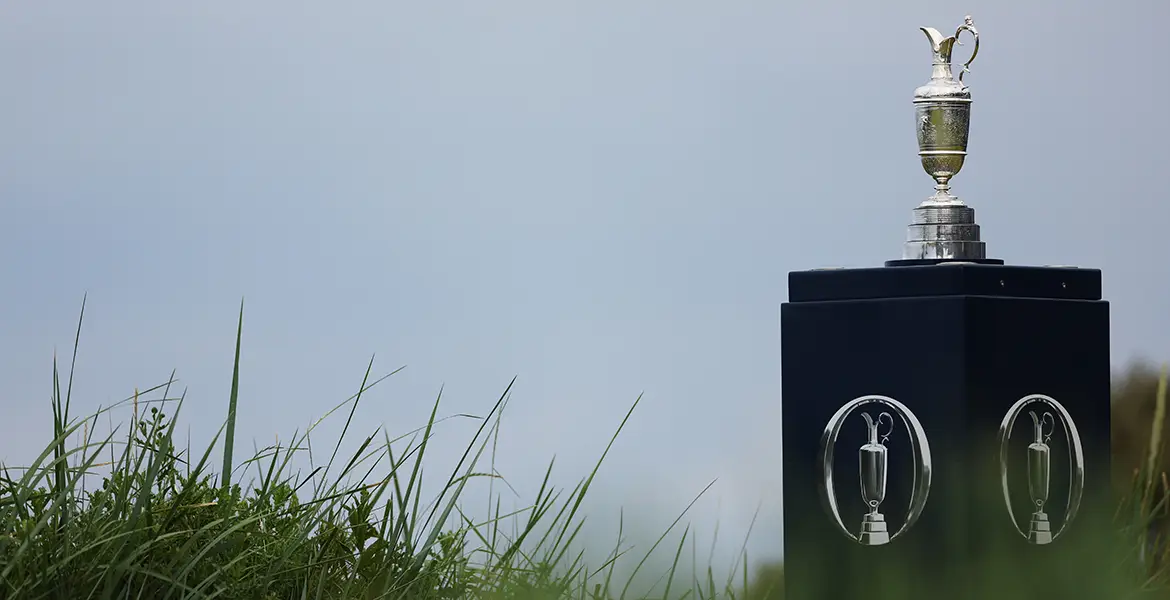“Blob” is a delightful word. Literally pregnant with meaning and so onomatopoetic—a blubbery gob, an obese blip, a bloated plop.
However, it has nothing to do with golf—or so I thought.
Shortly after settling in St. Andrews I found myself in a Stableford competition. At the 19th hole I asked one of my fellow players how he’d fared.
“Not badly,” he said. “Thirty-four points. It was all going beautifully until the 16th where I’m afraid I had a blob.”
“Hmm…” was all I could muster. Clearly, he’d suffered something embarrassing—a rules infraction, or perhaps a gastrointestinal event.
Later I overheard another chap lamenting a blob, and a third claimed, almost proudly, that his 30-point effort had included three blobs. I hadn’t heard the word so often since 1958 when Steve McQueen debuted in the campy horror movie of the same name.
The clincher came when my own playing companion, perusing our scorecard, said, “Nice round, George. You might have had a chance for a prize, were it not for that silly blob at the 12th.”
At last all was clear. Blob was British for “hole played with consummate ineptitude, ball in pocket, no points scored.” In the U.S., we call it an X; here it’s a blob.
Over the past four years I’ve encountered myriad other disconnects in the transatlantic jargon of the fairways. Indeed, while I’m fairly certain that George Bernard Shaw was not a golfer, he surely must have had the game front of mind when he said England and America were two nations separated by a common language.
Take “stonker.” Sounds like an awful word, doesn’t it—sort of a stinker on steroids. The truth is, it has a couple of off-color meanings—but not on the golf course where it is traditionally uttered with reverence by one’s playing companion after one has struck a particularly majestic tee shot.

A synonym for stonker is “beezer,” as is the more obscure “Bobby Dazzler,” the flummoxing source of which is an Australian sitcom from the 1970s.
I’ve always been amused by the Brits’ loose use of words such as lovely and brilliant. In the U.S. we generally reserve those adjectives for special things and people—a deep golden sunset is lovely, Einstein was brilliant. In the U.K. when you buy a pack of cigarettes with exact change, the grizzled little git behind the counter at the petrol station says “that’s lovely.” Even more absurdly, on the golf course you are likely to be deemed brilliant for just about any feat or gesture, whether it’s holing-out a 4-iron from a bunker or offering to share your candy bar.
The Brits have embraced the same naughty personifications for golf shots that we have (e.g. Linda Ronstadt for “blew by you,” O.J. Simpson for “got away with murder”) but they also have a couple of their own: less-than-attractive Olympic marathoner Sally Gunnell is routinely referenced after any shot that is “ugly but runs a long way,” and terrier-like former Chelsea footballer Dennis Wise is invariably invoked when someone faces a “nasty little five-footer.”
There’s also a whole cockney rhyming slang thing. If your ball finds Barney Rubble you’re in trouble; should you hit a Condeleeza Rice into the Fisherman’s Daughter you’ve sliced into water. The name that every British golfer dreads hearing is that belongs to an obscure filmmaker from the 1940s: J. Arthur Rank.
Instead of gauging the break and distance of a 30-footer, Brits work on “borrow” and “weight.” A putt that’s slugged past the hole is referred to as “a bit steamy” while one that comes up short but in the jaws “just needed hitting.” And when you yank a three-footer so badly that the ball never touches the hole, British civility dictates that your oppoent say “bad luck.” Depending on how far past the hole you’ve yanked it, he may also say “that’s okay.” This is not a further expression of solace, he’s just saying it’s a gimme. (In fairness “that’s okay” makes more sense than the American “that’s good.”)
One day on the difficult 17th hole of the Old Course a playing companion of mine sank a lengthy putt for a birdie. The match was over by that time but he was delighted nonetheless. “I needed that one for the eclectic,” he said. Eclectic, I learned, is Britspeak for “ringer score” the competition held at many U.S. clubs where players keep track of their best scores of the year on each of the 18 holes. Last year at The New Club in St. Andrews, the winning ringer score on the Old Course was 22 under par.
But it’s match play that can be truly linguistically vexing. On the first tee one morning, I asked why the group ahead of us was entitled to play from the championship tees while everyone else was restricted to the regular men’s markers.
“Oh, they’re playing a tie,” the starter said. This elicited another hapless “hmm.” I figured he meant they were in a sudden-death playoff. That theory dissolved as hole after hole, the four blokes in front of us continued playing. It turns out, “playing a tie” means simply playing a match. I’m not sure why the Brits call it a tie—it’s akin to an equally wacky expression they use in rugby. When a player crosses the goal line and scores it’s called “try.” (I mean, why play a match if it’s only going to be a tie, why score a goal if it’s only going to be a try?)
But my favorite is “jammy.” We do have the word in the U.S.—sort of—a noun denoting either top or bottom half of a child’s sleeping attire (though I wouldn’t allow you to use it in Scrabble). In the U.K. , however, it’s an powerful adjective meaning lucky—annoyingly lucky.
Should you ever be fortunate enough to play the 18th hole of the Old Course as I once did—with a tee shot that sailed out of bounds only to carom off Rusacks Hotel and back into play, followed by a fat 9-iron into the Valley of Sin and then a 70-foot putt that slam-dunked home for a match-winning birdie over your Scottish opponent—you will not fail to hear the same three glorious words I did: “You jammy bastard!”






